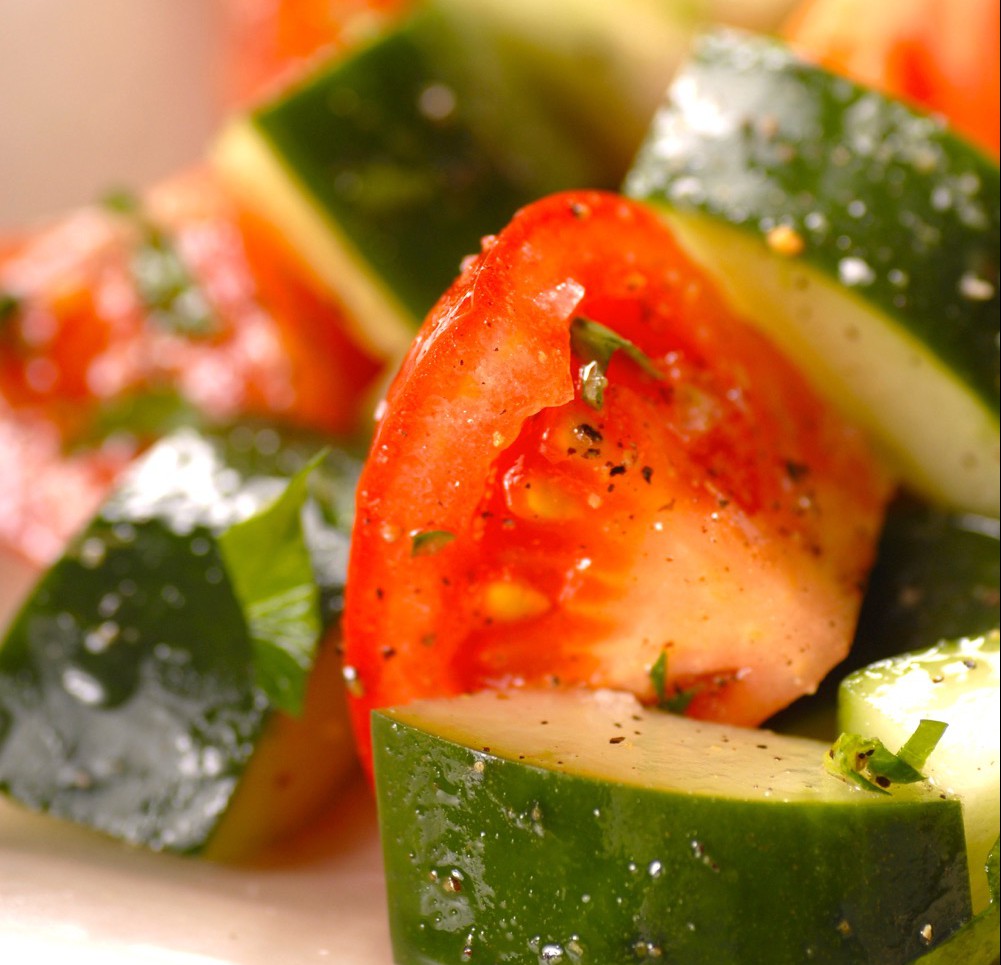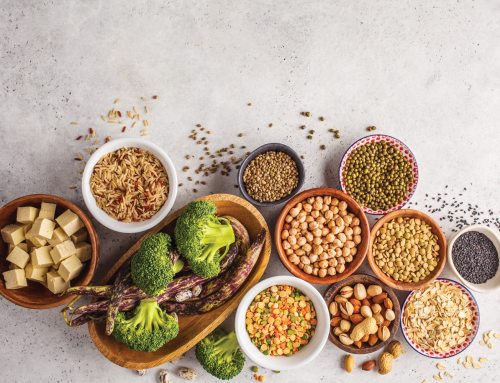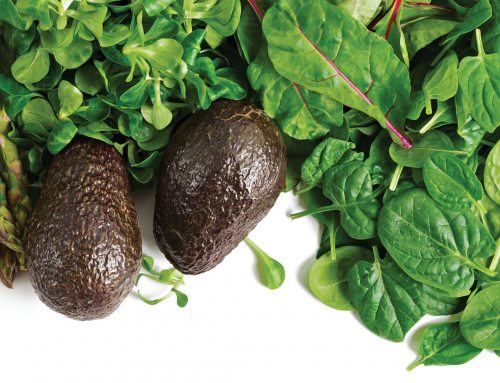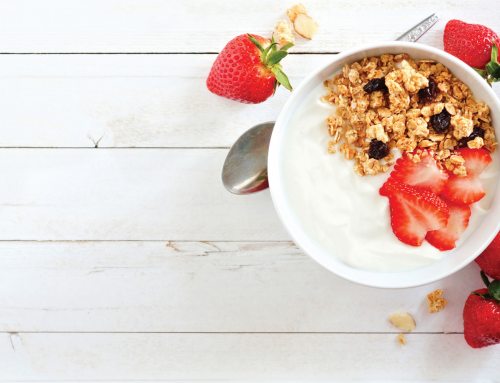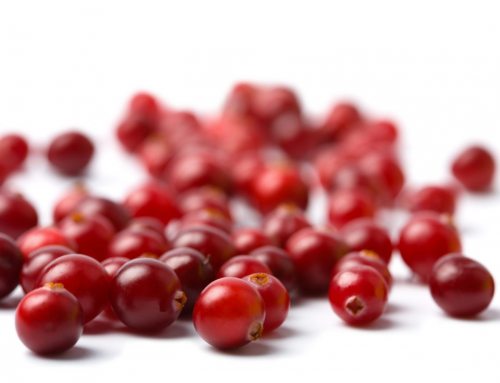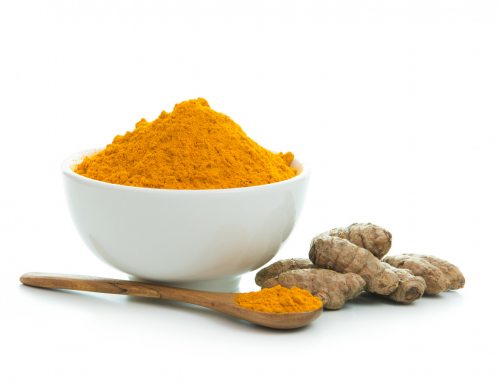By Brandon McDearis
This month’s recipe is quick and easy to prepare, but it is also very flavorful and refreshing. The fresh vegetables, garlic and parsley make for a detoxifying and anti-inflammatory addition to any meal. While this salad is great by itself, it also makes for a tasty and attractive garnish. The recipe serves 4-6.
Ingredients:
- 3 large cucumber, seeds removed and diced large
- ½ onion (yellow or red), sliced thinly
- 3 large tomatoes, cut into chunks or small wedges
- 1 clove garlic, minced
- 2 tablespoons olive oil
- juice from 1 lime
- 2 tablespoons balsamic
- 1 tablespoon honey
- dash of Tabasco
- 2 teaspoons salt
- 1 teaspoon black pepper
- 2 tablespoons chopped parsley
Preparation:
- Simply combine all ingredients except for the parsley in a bowl and mix thoroughly. Refrigerate for 1-2 hours to allow to fully marinade.
- Remove from the refrigerator, mix again thoroughly and taste. Adjust seasoning as need by adding a bit more salt, vinegar or whatever you feel it may need if anything.
- Mix in the chopped parsley and serve.
Nutrition Facts:
Calories: 115 / Fat: 6g / Saturated Fat: 1g / Carbohydrates: 10g / Fiber: 2g / Protein: 2g
# # #
Brandon McDearis is the owner of Your Way Cuisine, www.yourwaycuisine.com, a personal chef and nutrition consulting business. He is also a professional wanderer that spends much of his year trotting the globe and working in places such as Alaska, Australia, and Antarctica.
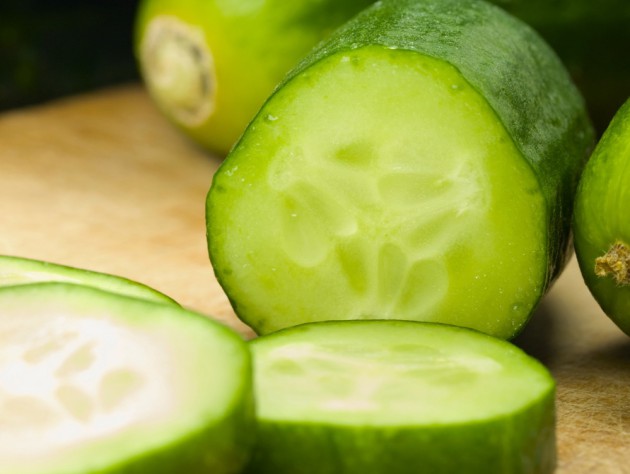 Cool Facts About Cucumbers
Cool Facts About Cucumbers
Cucumbers are the fourth most cultivated vegetable in the world and belong to the same plant family as squash, pumpkin, and watermelon (the Cucurbitaceae family). Like watermelon, cucumbers are made up of mostly (95 percent) water, which means they can help you stay hydrated. Cucumbers are often sprayed with pesticides so it is important to buy organic or even better, grow them yourself. With vitamin K, B vitamins, copper, potassium, vitamin C, and manganese, cucumbers can help you to avoid nutrient deficiencies that are widespread among those eating a typical American diet. Cucumbers are good sources of phytonutrients (plant chemicals that have protective or disease preventive properties) such flavonoids, lignans and triterpenes, which have antioxidant, anti-inflammatory and anti-cancer benefits. The peel and seeds are the most nutrient-dense parts of the cucumber. They contain fiber and beta-carotene, a form of vitamin A that is good for eyes. Naturally low in calories, carbohydrates, sodium, fat and cholesterol cucumbers provide about 4 percent of your daily potassium, which is significantly fewer calories than most high-potassium foods like bananas! You also get about 3 percent of your daily fiber and 4 percent of your daily vitamin C from cucumbers.


